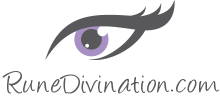 The East Goths were the first to use Runes, and that was over 1500 years ago. Their appearance throughout England and Scandinavia was later. The use of runic alphabets in divination was considered a pagan practice when Christianity took hold. The word “rune” originates from an early Anglo-Saxon word meaning “secret” or “mystery”
The East Goths were the first to use Runes, and that was over 1500 years ago. Their appearance throughout England and Scandinavia was later. The use of runic alphabets in divination was considered a pagan practice when Christianity took hold. The word “rune” originates from an early Anglo-Saxon word meaning “secret” or “mystery”
Runes gained popularity mostly among Wiccans and modern pagans but that didn’t stop them from enjoying unprecedented mainstream adoption in the past 30 years.
Different kinds of Rune stones exist depending on the alphabet you decide to follow. These are Anglo-Saxon Futhorc, Cirth, Elder Futhark, Gothic Runes, Hungarian Runes, Turkic, and Younger Futhork. The emerging Rune alphabet in popularity is Elder Futhark. The other name is “blank”.
The best way to use your runes
This depends on you.
Below are known procedures of how runes are used:
Procedure #1: close your eyes with your runes in their pouch. Pay attention to the situation you want an answer for. Then decide your answer by choosing a rune from the bag.
Procedure #2: While thinking of what you want an answer for, toss the runes from the bag onto a soft surface gently. The rune(s) that will stand out the most during this process is your answer.
Procedure #3: While in a neutral state of mind and with your eyes closed, remove three runes from the bag and line them. The answer to a past situation is the first rune. The answer to a current situation is the second rune and the last is an answer to an oncoming situation.
Procedure #4: Pass your hand slowly over the lying runes while paying attention to what you want your answer for. You can use your right hand if you are left-handed and use your left hand if you are right handed then you will recognize the rune that has the answer to your question.





The blend of various runic alphabets suggests a rich tapestry of cultural exchanges throughout history.
‘Tis interesting to consider how each rune correlates to different aspects of life and destiny.
‘Aye, every rune holds a unique essence that can provide insight if one opens themself to it.
Do you think some runes might have lost their meaning over time due to misinterpretation?
The process described for choosing runes seems both personal and symbolic; I appreciate its subjective nature.
The historical context of runes is quite fascinatin. One must wonder how they evolved over centuries and what influenc they had on each other.
It raises questions about the syncretism between pagan practices and emerging religious beliefs.
Indeed, the adaptatoin of runes is reflective of cultural shifts, especially during the transition to Christianity.
It seems like a fascinating journey to explore one’s own psyche through the use of ancient symbols.
The methodolgy of using runes is intriguing, but I wonder about its effectiveness in modern contexts.
While the methods seem simple, I believe their power lies in personal interpretation and intuition.
‘Tis true; it’s all about one’s mindset when engaging with such tools of divination.
I am curious if there are any empirical studies on the efficacy of using runes in decision making.
I find it intersting that runes have gained mainstream acceptance recently despite their pagan origins.